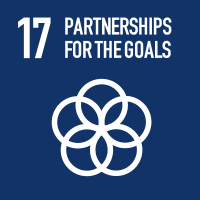Studying at the University of Verona
Here you can find information on the organisational aspects of the Programme, lecture timetables, learning activities and useful contact details for your time at the University, from enrolment to graduation.
Study Plan
This information is intended exclusively for students already enrolled in this course.If you are a new student interested in enrolling, you can find information about the course of study on the course page:
Laurea magistrale in Management e strategia d’impresa - Enrollment from 2025/2026The Study Plan includes all modules, teaching and learning activities that each student will need to undertake during their time at the University.
Please select your Study Plan based on your enrollment year.
1° Year
| Modules | Credits | TAF | SSD |
|---|
1 module between the following1 module between the following2° Year activated in the A.Y. 2023/2024
| Modules | Credits | TAF | SSD |
|---|
1 module between the following1 module between the following1 module between the following| Modules | Credits | TAF | SSD |
|---|
1 module between the following1 module between the following| Modules | Credits | TAF | SSD |
|---|
1 module between the following1 module between the following1 module between the following| Modules | Credits | TAF | SSD |
|---|
Legend | Type of training activity (TTA)
TAF (Type of Educational Activity) All courses and activities are classified into different types of educational activities, indicated by a letter.
Relationship and digital marketing (2023/2024)
Teaching code
4S008089
Academic staff
Coordinator
Credits
9
Language
Italian
Scientific Disciplinary Sector (SSD)
SECS-P/08 - MANAGEMENT
Period
Secondo semestre (lauree magistrali) dal Feb 26, 2024 al May 24, 2024.
Courses Single
Authorized
Learning objectives
The main purpose of this course is to get students to think about Digital Marketing from a strategic point of view of Relationship Marketing, in order to ehnance their abilities to remember, understand, and apply the main concepts of Relationship and Digital Marketing: Relations, Networks, Interactions. Analytical thinking is provided through multiple case study analysis, included some guided tours to local companies. Knowledge application will be tested through group projects. Students will be also called to test their problem solving skills, so that, at the end of this course, they will be able to create and present to a professional audience their Digital Marketing Projects.
Prerequisites and basic notions
It is suggested to approach this course with marketing basics.
Program
Relationship Marketing orientation:
- The genesis of RM and the new paradigm
- relations, network, interactions
- Classic market relationship, Special market relationship, Mega relationship, Nano relationship
- Measuring RM effort through the ROR index (Return on relationship)
Communication planning to ehnance interaction:
- conversational models; from strategy to operational communication
- omnichannel, - onmiengagement rate and communication metrics
Digital and Social Media Marketing:
- social media marketing and planning
- research for digital marketing and the role of big data - customer journey mapping
- digital media mix and selection
- digital and social media metrics and analysis.
Bibliography
Didactic methods
Lectures will be delivered in-person (the course is taught by two faculty members coordinated with each other), using relational and interactive methods, but will also be recorded to allow for asynchronous enjoyment. However, we clarify that the interactive moments in the classroom are hardly accessible from the video lessons. As it is a course on "relationships," "active" attendance is suggested, entering into direct relationships with high interaction, both in presence and remotely (via the course's Telegram group). Teaching will include classical frontal lectures, supplemented with exercises and cases to be developed individually or in small groups in the classroom, moodle or Telegram. Some lectures will be conducted by applying experiential teaching modes in presence.
Learning assessment procedures
The exam consists of the delivery of a digital relational marketing plan (achievable as a team), with mandatory individual oral presentation.
- Digital relational marketing plan: this is a written document of up to 20 pages (developable as group work, maximum 3 members, on the case proposed by the Italian Marketing Society (see premiomarketing.com). The plan must be submitted on moodle by the date of the oral exam.
- Mandatory oral presentation of the plan for theoretical-technical discussion of decisions made (individual).
In addition, up to 3 bonus points can be awarded to students who actively participate in the course (max 1 point) and/or participate in the project work proposed by the lecturers (up to 2 points). The project work is a business challenge with specific objectives and will be presented in class (more details in moodle) with delivery deadline by the end of the RDM (Relationship and Digital Marketing) course.
Foreign students should contact Prof. Signori for further information.
Evaluation criteria
Evaluation criteria for digital marketing plan including oral exposition= communication, organizational, learning, application, critical, and propositional skills will be taken into account. Specifically:
- communication skills (setting and structure of plan contents; oral exposition with confidence and mastery of contents); organizational skills (knowing how to organize with logic and coherence); learning skills (demonstrating theoretical knowledge and RDM techniques); application skills (plan contents demonstrate the ability to apply theoretical knowledge and RDM techniques to real cases/examples); critical skills (knowing how to interpret data and evaluate the limitations of the various theories analyzed); propositional skills (plan contents are evaluated in knowing how to suggest new ideas and solutions to highlighted problems).
Criteria for the composition of the final grade
The grade in thirtieths is unique and inclusive of the content of the digital marketing plan and the oral presentation; any bonus points accrued from the delivery of project work or active attendance during the course (max 3 points) will be added to the final grade.
Exam language
Italiano



